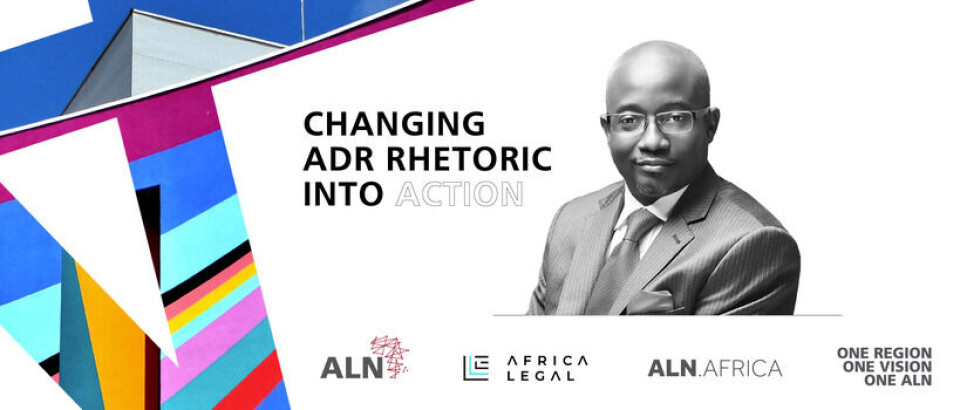Copyright : Re-publication of this article is authorised only in the following circumstances; the writer and Africa Legal are both recognised as the author and the website address www.africa-legal.com and original article link are back linked. Re-publication without both must be preauthorised by contacting editor@africa-legal.com
Changing ADR rhetoric into action

Action is needed if African-based firms want to play a bigger role in dispute resolution on the continent, says Babatunde Fagbohunlu, SAN, who spoke to Craig Sisterson.
Even as Africa becomes a hotspot for a range of regulatory, investment and commercial disputes, African states, arbitral seats and practitioners should not expect to be chosen without showing a clear value proposition, says disputes expert Babatunde Fagbohunlu.
“I’ve heard so much talk about the desire to strengthen arbitration in Africa, and it’s time to move rhetoric into action,” noted Fagbohunlu, senior partner at leading Nigerian law firm Aluko & Oyebode. “Part of moving from rhetoric into action is recognising what I call comparative advantage. Where do the strengths of African states and practitioners lie? How do they leverage those strengths, and use them to complement other jurisdictions that have had more than a century of institutional arbitration?”
Fagbohunlu, a Senior Advocate of Nigeria (SAN) whose firm is part of pan-African alliance ALN, recently participated in London International Disputes Week (LIDW), a global gathering of disputes resolution experts and practitioners. The 2023 theme was “Adapting to a Changing World”; Fagbohunlu says several sessions highlighted the growing significance of Africa.
“A number of factors make Africa a focus region for the disputes market,” he said. “You’ve got the African Continental Free Trade Area Agreement, and only just recently the Investment Protocol was signed. You’ve got climate change challenges and energy transition.”
For Fagbohunlu, themes that stood out at LIDW included the ambition of many African practitioners to have a greater stake in the international disputes landscape, particularly for disputes arising from Africa, and a desire to see more involvement of African arbitral seats.
“Another point that stood out for me was the importance of building capacity among African judges. It’s a good thing to want to see more disputes resolved in Africa, but it’s important that there’s a value proposition being offered. If we want Cape Town, Johannesburg, Lagos, Abuja, Accra and Nairobi to see a lot more African disputes resolved in those seats, then it’s very important that we pay attention to how well the judges are serving the interests of international dispute resolution. Do they have the capacity and the necessary policy orientation?” he queried.
Events like LIDW play a key role, says Fagbohunlu, in building relationships across cultures and jurisdictions (development and business networking), while also offering a “melting pot” for different perspectives, sensitivities and priorities to come together and explore opportunities for collaboration and synergy. In future, he’d like to see more in-house counsel and business people present – the actual users who often select arbitrators and external counsel.
Greater collaboration is also important for African arbitral institutions, commented Fagbohunlu. He’s recently been in Mauritius to sign a cooperation agreement between international arbitration centres in Lagos and Mauritius. “I was quite impressed with the facilities I saw, with the quality of the personnel and the staff I saw … and also the types of disputes that law firms resident in Mauritius are handling, including complex investment disputes.”
A memorandum of understanding was also recently signed with the Lagos Chamber of Commerce International Arbitration Centre (LACIAC). Looking ahead, Fabohunlu wants to see African arbitral institutions collaborating among themselves, and cooperating with centres outside the continent.
To learn more about the dispute resolution landscape in Africa, read Africa Legal’s recent report on the subject, commissioned by the UK Ministry of Justice. From established arbitration centres to the adoption of mandatory court-annexed mediation, the continent is shifting gears, but challenges persist. Clickhere to download the report.
To join Africa Legal's mailing list please click here
